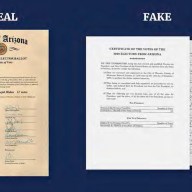It’s tough being in the automobile business these days. Shares of General Motors plunged to a 75-year low Friday — underscoring the financial misery faced by North America’s largest carmaker.
Mind you, not all auto-centric industries are hurting. In recent years, car-sharing organizations have been thriving — buoyed by volatile gas prices and denser urban neighbourhoods, not to mention the public’s growing focus on the environment.
Car sharing, after all, results in fewer autos on the road and in parking lots. That, in turn, reduces the need for blacktop — so in theory it’s good for all of us, especially if communities get more green space in exchange.
Given this region’s push toward density and reducing carbon emissions, it’s no surprise that Metro Vancouver has been a leader on the car sharing front.
The non-profit Co-operative Auto Network started in 1996 with a few folks sharing the keys to a Pontiac Firefly. Now, the organization lays claim to thousands of members across the Lower Mainland sharing hundreds of cars, trucks and vans.
It’s a major success story.
Other organizations have since entered the Vancouver market. In 2007, U.S.-based Zipcar launched its own car-sharing service here. The company now serves more than 50 cities in Canada, the U.S. and the U.K.
Writing for the New York Times this weekend, Mark Levine gushed over the growing legion of automobile sharers, who “drive from a quarter to half as much as owners — a staggering reduction in energy consumption.” He notes “they save money, do better by the environment and contribute less to congestion.”
As a longtime member of the Co-operative Auto Network, I’m happy to vouch for Levine’s glowing assessment. But it’s not quite as perfect as he would have us believe.
An organization like this is only as good as its weakest members. Sadly, there are a handful of those — who leave garbage behind in vehicles, fail to report damage, and can’t be bothered to put gas in the tank.
Speaking for myself, the club’s impressive growth also seems to have diluted its “co-operative” roots.
Last month, I was given the bureaucratic brush-off from a call centre manager after I was overcharged $25 by the program’s online booking system.
Let’s hope these kinds of wrinkles can be ironed out.
Because when it comes to the bigger picture, car sharing is still a winning bet.
















